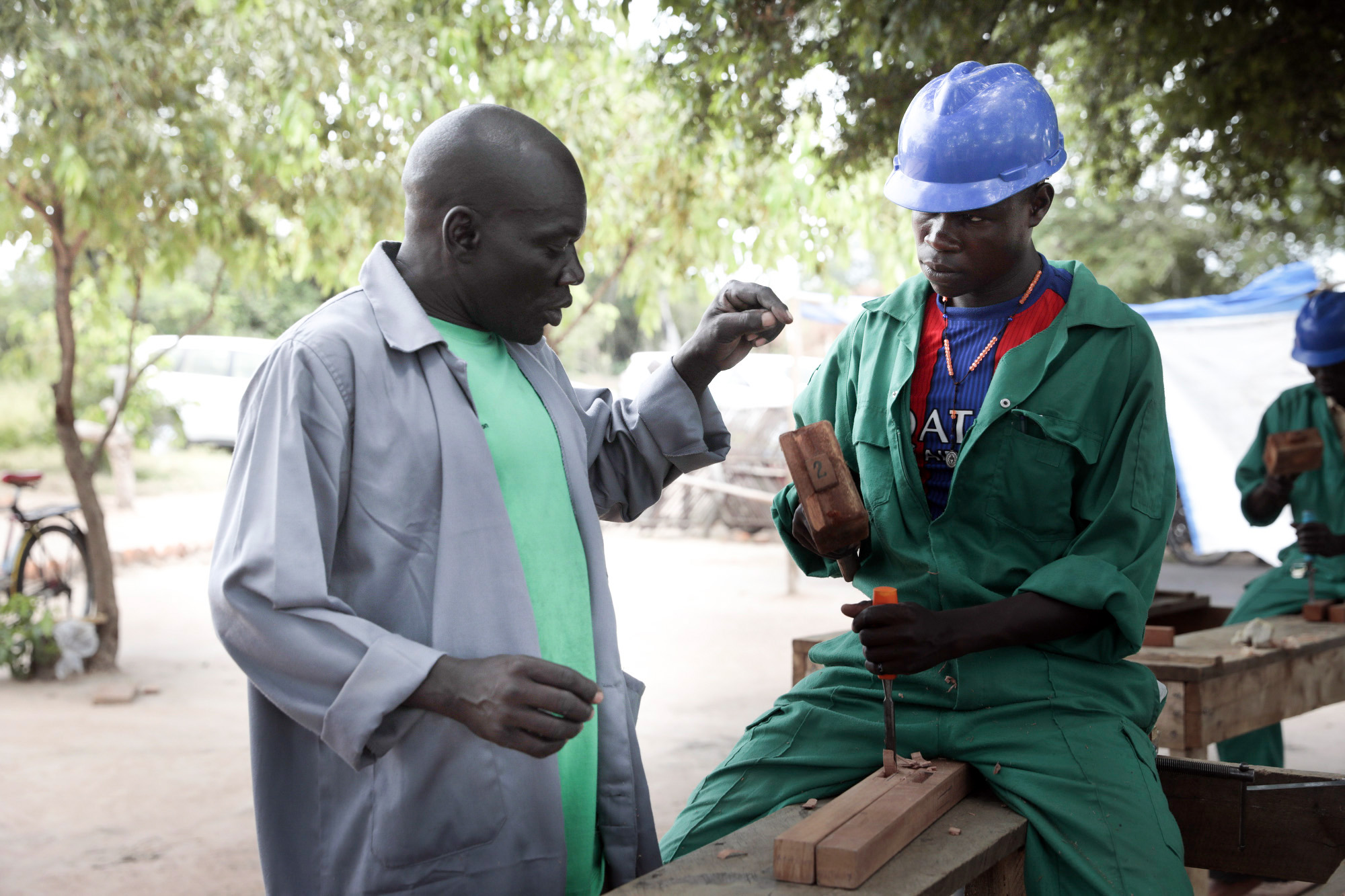Trainees at the Siripi Youth Skills Training Centre, in the Rhino refugee settlement in Uganda
Copyright© Ute Grabowsky/photothek.net
Bilateral development cooperation The direct approach to the partner
This mutual - bilateral - form of cooperation with developing countries is direct and visible for everyone. It is more strongly registered by the general public than German involvement within the European Union, the United Nations and other international institutions. Bilateral cooperation is therefore the “face” of German development policy at home and abroad.
Direct cooperation with partner countries offers Germany the chance to let other countries benefit from German skills and to learn in its turn. However, direct cooperation with developing countries is not only the responsibility of the state. Anybody can get involved: by donating cash, by getting involved in development-policy initiatives and organisations, by supporting fair trade or working on the ground in a partner country, for example through the development volunteers service “weltwärts”, or by working as a development volunteer.
International cooperation
Official development cooperation is based on agreements between the governments of the partner countries and the German government. These agreements are made at the government negotiations that take place roughly every two years. In the scope of these negotiations, strategies for the future are developed together with the partner country and agreement reached regarding the volume of Financial Cooperation and the Technical Cooperation measures commissioned by the Federal Republic of Germany. All the outcomes of the negotiations are recorded in agreements that are binding under international law.
The cooperation measures agreed upon in the government-to-government agreements form one pillar of German development cooperation with partner countries. The second pillar consists of the activities proposed by non-governmental organisations and carried out in the partner countries - for example by the churches, political foundations and a very large number of other non-governmental organisations (NGOs). Government funding also goes to support this form of German development cooperation with partner countries. Responsibility for the implementation of the projects, however, lies in the hands of the non-governmental organisations. Despite the government grants, they remain fully independent.
